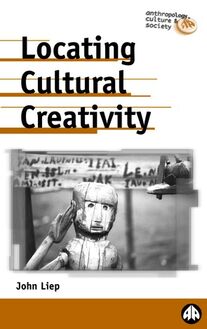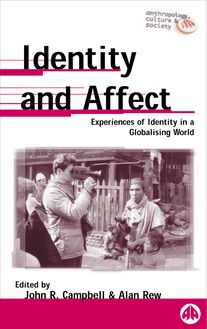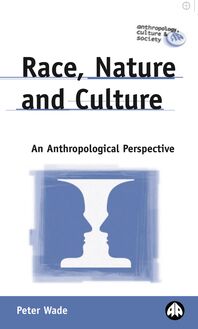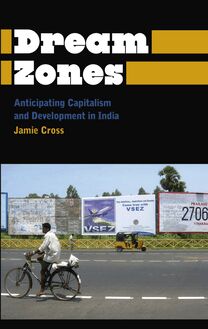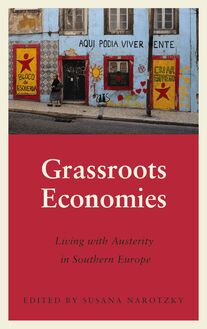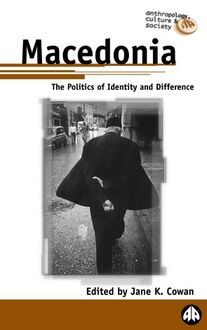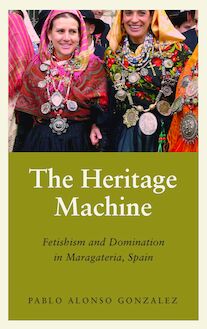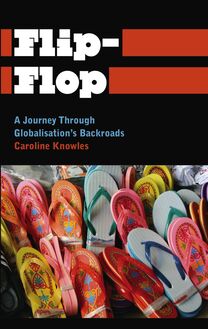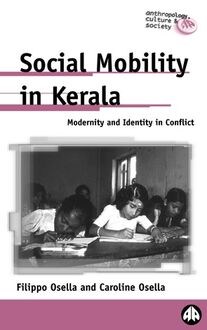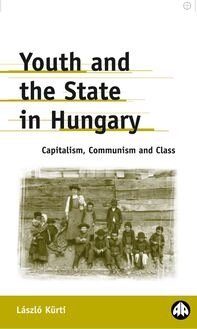Race, Nature and Culture , livre ebook
131
pages
English
Ebooks
2002
Vous pourrez modifier la taille du texte de cet ouvrage
Obtenez un accès à la bibliothèque pour le consulter en ligne En savoir plus
Découvre YouScribe en t'inscrivant gratuitement
Découvre YouScribe en t'inscrivant gratuitement
131
pages
English
Ebooks
2002
Vous pourrez modifier la taille du texte de cet ouvrage
Obtenez un accès à la bibliothèque pour le consulter en ligne En savoir plus
Publié par
Date de parution
20 juin 2002
Nombre de lectures
1
EAN13
9781783714933
Langue
English
Wade is critical of contemporary theoretical studies of race formulated within the contexts of colonial history, sociology and cultural studies. Instead he argues for a new direction; one which anthropology is well placed to explore. Taking the study of race beyond Western notions of the individual, Wade argues for new paradigms in social science, in particular in the development of connections between race, sex and gender. An understanding of these issues within an anthropological context, he contends, is vital for defining personhood and identity.
Race is often defined by its reference to biology, 'blood,' genes, nature or essence. Yet these concepts are often left unexamined. Integrating material from the history of science, science studies, and anthropological studies of kinship and new reproductive technologies, as well as from studies of race, Peter Wade explores the meaning of such terms and interrogates the relationship between nature and culture in ideas about race.
1. Defining Race
2. Existing approaches to race
3. Historicising Racialised Natures.
4. Genetics and kinship: the interpenetration of nature and culture
5. Race, nature and culture
6. Embodying racialised natures
Coda
References Cited
Index
Publié par
Date de parution
20 juin 2002
Nombre de lectures
1
EAN13
9781783714933
Langue
English
RACE, NATURE AND CULTURE
Anthropology, Culture and Society
Series Editors: Professor Thomas Hylland Eriksen, University of Oslo Dr Katy Gardner, University of Sussex Dr Jon P. Mitchell, University of Sussex
Land, Law and Environment: Mythical Land, Legal Boundaries Edited by A LLEN A BRAMSON AND D IMITRIOS T HEODOSSOPOULOS
The Trouble with Community: Anthropological Reflections on Movement, Identity and Collectivity V ARED A MIT AND N IGEL R APPORT
Anthropology and the Will to Meaning: A Postcolonial Critique V ASSOS A RGYROU
The War of Dreams: Exercises in Ethno-Fiction M ARC A UGÉ
Orange Parades: The Politics of Ritual, Tradition and Control D OMINIC B RYAN
Identity and Affect: Experiences of Identity in a Globalising World Edited by J OHN R. C AMPBELL AND A LAN R EW
Risk Revisited Edited by P AT C APLAN
Women of a Lesser Cost: Female Labour, Foreign Exchange and Philippine Development S YLVIA C HANT AND C ATHY M C I LWAINE
Macedonia: The Politics of Identity and Difference Edited by J ANE K. C OWAN
Ethnicity and Nationalism: Anthropological Perspectives T HOMAS H YLLAND E RIKSEN
A History of Anthropology T HOMAS H YLLAND E RIKSEN AND F INN S IVERT N IELSON
Small Places, Large Issues: An Introduction to Social and Cultural Anthropology T HOMAS H YLLAND E RIKSEN
Life on the Outside: The Tamil Diaspora and Long-Distance Nationalism Ø IVIND F UGLERUD
Anthropology, Development and the Post-modern Challenge K ATY G ARDNER AND D AVID L EWIS
Power and its Disguises: Anthropological Perspectives on Power J OHN G LEDHILL
Anthropological Perspectives on Kinship L ADISLAV H OLY
Youth and the State in Hungary: Capitalism, Communism and Class L ÁSZLÓ K ÜRTI
Locating Cultural Creativity Edited by J OHN L IEP
Anthropology of the Self: The Individual in Cultural Perspective B RIAN M ORRIS
New Directions in Economic Anthropology S USANA N AROTZKY
Ethnography and Prostitution in Peru L ORRAINE N ENCEL
Witchcraft, Power and Politics: Exploring the Occult in the South African Lowveld I SAK A. N IEHAUS with E LIAZAAR M OHLALA AND K ALLY S HOKANE
Anthropology and Cultural Studies Edited by S TEPHEN L. N UGENT AND C RIS S HORE
Social Mobility in Kerala: Modernity and Identity in Conflict F ILIPPO O SELLA AND C AROLINE O SELLA
Bearing Witness F IONA C. R OSS
Being There: Fieldwork in Anthropology Edited by C.W. W ATSON
Human Rights, Culture and Context: Anthropological Perspectives Edited by R ICHARD A. W ILSON
RACE, NATURE AND CULTURE
An Anthropological Perspective
P ETER W ADE
First published 2002 by PLUTO PRESS 345 Archway Road, London N6 5AA and 22883 Quicksilver Drive, Sterling, VA 20166–2012, USA
www.plutobooks.com
Copyright © Peter Wade 2002
The right of Peter Wade to be identified as the author of this work has been asserted by him in accordance with the Copyright, Designs and Patents Act 1988.
British Library Cataloguing in Publication Data A catalogue record for this book is available from the British Library
ISBN 978 0 7453 1459 4 Hardback ISBN 978 0 7453 1454 9 Paperback ISBN 978 1 8496 4052 7 PDF eBook ISBN 978 1 7837 1494 0 Kindle eBook ISBN 978 1 7837 1493 3 EPUB eBook
Library of Congress Cataloging in Publication Data A catalogue record for this book is available
10 9 8 7 6 5 4 3 2 1
Designed and produced for Pluto Press by Chase Publishing Services, Fortescue, Sidmouth EX10 9QG Typeset from disk by Stanford DTP Services, Towcester Printed in the European Union by Antony Rowe, Chippenham, England
CONTENTS
Acknowledgements
1.
Defining Race
2.
Existing Approaches to Race
3.
Historicising Racialised Natures
4.
Genetics and Kinship: the Interpenetration of Nature and Culture
5.
Race, Nature and Culture
6.
Embodying Racialised Natures
Coda
Notes
References
Index
ACKNOWLEDGEMENTS
In writing this book, I ventured onto terrain that I was not initially very familiar with and I am grateful to many colleagues for help and suggestions about relevant reading matter, for sending me materials (some of them unpublished or still in press) and for exchanging emails and ideas about the themes I was working on. I would like to thank the following people, listed in alphabetical order: Linda Alcoff, Roberta Bivins, Susan Brems, Michael Bravo, Claudia Castañeda, William Dressler, Jeanette Edwards, Gillian Feeley-Harnik, Sarah Franklin, Sarah Green, Faye Harrison, Signe Howell, Tim Ingold, Barbara A. Koenig, Patricia A. Marshall, Kathryn Oths, Helena Ragoné, Ann Stoler, Marilyn Strathern, Elly Teman and Katharine Tyler.
My thanks are also due to Richard Wilson, who was one of the editors of this series when I began this project and first suggested that I write the book, and to the publishers at Pluto Press, Roger van Zwanenberg and Anne Beech.
I would also like to thank Laura Harrison for her sharp copy-editor’s eye.
1. DEFINING RACE
Race is a topic of increasing concern to anthropologists. My contention in this book is that, although this is a welcome development, anthropologists – and other social scientists who study this subject – would benefit by focusing on a theme that hitherto has received little attention and yet that seems to be at the very centre of ideas about race. By reading across the disciplinary boundaries of the history of science, science studies, anthropological kinship studies and studies of race, I attempt to explore ideas about the nature of ‘nature’, that domain that seems to ground ideas about race and in relation to which scholars, either explicitly or implicitly, define a racial discourse. In a laudable, important and necessary way, scholars have tended to focus on questions of identity, politics and inequality when approaching race. In doing so, they have looked less thoroughly at ideas about human nature, ‘blood’, heredity, bodily substance, relatedness, biology and genes as they enter into discourses about race. Yet scholars still tend to define or recognise a racial discourse by the fact that it deploys these ideas (although this may not be the only defining criterion they use). These ideas thus tend to drop into a taken-for-granted, background position and this alone makes them ripe for a closer examination. Furthermore our understandings of identity, inequality and racism will be enhanced by a more nuanced grasp of the idioms of nature which are being used in expressing, creating and enacting these phenomena.
Social anthropology is well placed to advance such a study because it has a history of investigating ideas about nature, human relatedness, human bodily substances and what it is that makes people into people, linked (or not) to other people. Anthropology is not alone in its enquiries into human nature: historians and philosophers have also made major contributions as my use of some of their work in Chapter 3 will make apparent. Anthropology is useful in its ethnographic approach which reveals how concepts about human nature and biology are mediated through the realms of, for example, kinship. This gives a valuable insight into everyday ideas about these matters, as the material presented in Chapter 4 will show. Anthropology is also well placed for the work I want to pursue due to its inclination – shared with some other fields, including philosophy, history and feminism – to question apparently self-evident categories such as gender, nature and culture and reveal them as culturally mediated.
RACE IN ANTHROPOLOGY
Questions of race rather dropped out of post-war anthropology in Europe and the US. Prior to this anthropologists had made a mixed contribution to theories about race. On the one hand, some early anthropologists supported late-nineteenth-century and early-twentieth-century raciology or scientific racism, that is the dominant theories elaborated by scientists of the day – mostly medics and naturalists – that humans were divided into a few, distinctive racial types each with its own fairly ingrained or even immutable characteristics and all arranged in a stable moral, social and intellectual hierarchy in which white Europeans were at the top (F. Harrison, 1995, 1998; Shanklin, 1994, 1998; Smedley, 1993; Stocking, 1971, 1982). On the other hand, from the early twentieth century, anthropologists were among the most outspoken in denying a) that humans could be divided up systematically in this way, and b) that moral, social and intellectual capacities were linked in any significant way to race (as judged from appearance). The most famous among these revisionists is Franz Boas, but he was not alone in his endeavours – the black US sociologist, W.E.B. Du Bois, for example, was also a vocal opponent of racial typology (Baker, 1998; Harrison, 1992; Harrison and Harrison, 1999).
From the time of Boas onwards, scientific racism gradually weakened, although it continued to underwrite the eugenics movement – an alliance of social policy and science that aimed to restrict the breeding of ‘races’ seen as less ‘fit’ – which had its most explicit manifestation under Nazism (Kevles, 1995; Paul, 1995; Stepan, 1982). Within anthropology various views existed. Many still held that races existed as biological entities, asserting that human biodiversity could be usefully broken up into broad racial types, even though these were not very clearly bounded and had no relation to intellectual capability; in fact a number of biological and even cultural anthropologists hold such a view today (Lieberman and Reynolds, 1996). Others held that race had no biological reality at all, arguing that the history of human travel and sexual interaction has made it impossible to delineate any biological types. This is now a dominant view in social and cultural anthropology. In each argument, race is also said to exist as a purely social category or construction; even those who claim that the concept of race captures some aspect of biological reality may also concede that race can exist in popular thought a
